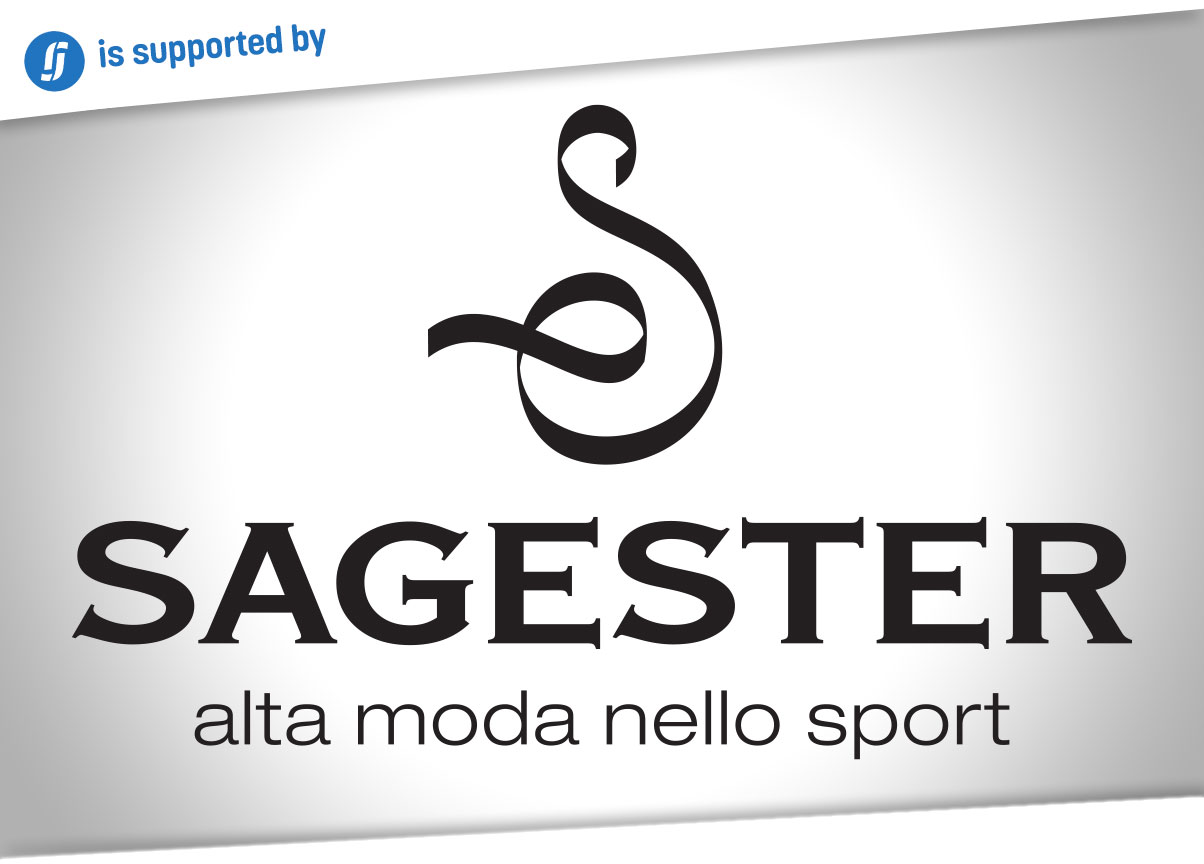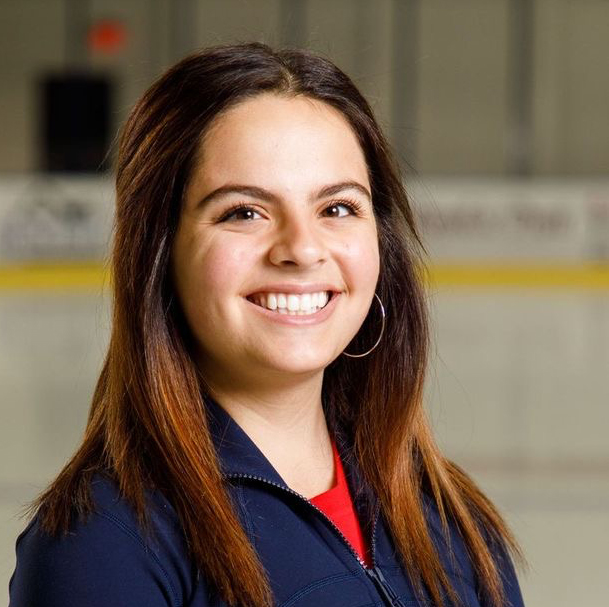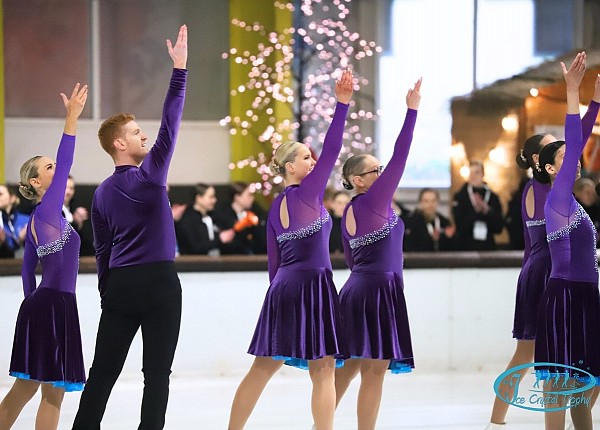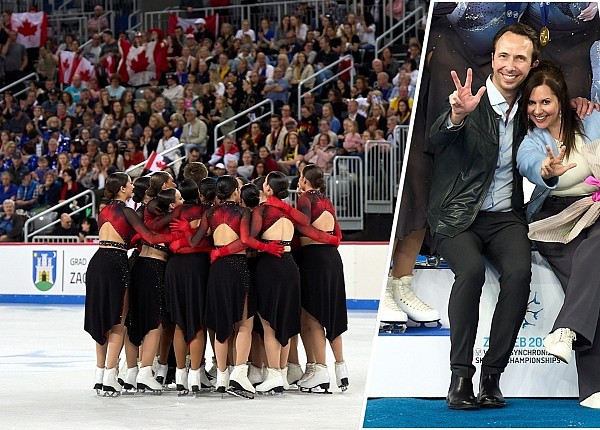Magazine
What is Collegiate Skating? A Rundown of College Synchro
Magazine
What is Collegiate Skating? A Rundown of College Synchro

The Liberty Flames Open Collegiate team celebrating after clean skate. (Credits: KJ Jugar - 2021)
Collegiate skating allows skaters of all levels to continue their synchro career throughout school while representing their university.

Did you know that in the United States, synchro skaters can represent their college in two separate collegiate levels?
In the United States, college students can continue their synchro careers through their university. Today, over 20 colleges have synchro teams, including three schools with fully funded teams.
College skating is inclusive to a variety of levels, including two levels designed for strictly for universities. Some college students come in with years of experience under their belt, while some come from a beginner synchro level.
The Collegiate levelThe most popular level for college skating is the Collegiate level. This year, there are 14 teams that competed under Collegiate, with 13 of them going to the USFSA National Championships in Colorado Springs, Colorado from March 3-6.
Collegiate programs are around 3:30 (give-or-take 10 seconds) minutes and feature eight elements. They are also under the IJS judging system and compete at all the same competitions as other levels. To compete at the Collegiate level, skaters must have passed the Juvenile moves in the field test and must be enrolled as a full-time college student.
The Open Collegiate levelThe other strictly-college level is Open Collegiate, which is judged under the 6.0 system. To compete at Open Collegiate, there are no testing requirements, but the athlete must be enrolled as a full-time college student. Furthermore, Open Collegiate does not have a chance to qualify for the USFSA National Championships.
Additionally, some schools offer teams that do not fall under these levels. For example, both Miami University and Adrian College offer Senior teams and Trine University has an Open Adult team in addition to their Collegiate and Open Collegiate teams.
On top of being a busy student-athlete, the college may have academic requirements for the athlete to sustain a high GPA to maintain student-athlete status. Although it may be challenging at times, many collegiate skaters find that synchro helps them stay disciplined in their studies.
“I think managing academics and synchro is definitely challenging, but it also gives me a strict schedule,” Michigan State Open Collegiate skater Giulia Castiglioni said. “I have learned a lot about time management skills with my experiences with being a student-athlete in high school and I continuously use and develop those skills to help me stay on top of my work.”
Most college synchro skaters tend to practice either early or late-at-night to avoid conflicts with their class schedules. University of Michigan Collegiate skater Mackenzie Gottberg says that she appreciates the early-morning practices.
“Our practice schedule can be overwhelming at times, but it never interferes with classes,” Gottberg said. “It forces you to get up and going with your day which I appreciate.”
Just like any college-athlete, many college synchro skaters take pride in their school and love that they get the opportunity to represent their university. For example, many synchro skaters will wear their team’s apparel across campus to strike up a conversation about synchronized skating.
“I definitely take pride in my school,” Liberty University Collegiate skater Kylie Strong said. “I am so blessed to be able to skate with such an amazing school and I love walking around school wearing my Liberty University Synchronized Skating jacket.”
Overall, skating synchro in college is a great way for athletes to create close friendships while continuing to do what they love. Having teammates as classmates provides a unique synchro experience and inspires skaters to push themselves both in-the-classroom and on-the-ice.

“I love the friendships you make and that you share so many of the same experiences as your teammates that you wouldn’t on a team outside of the Collegiate level,” Gottberg said. “There’s nothing better than bumping into a teammate on the way to class or being able to have a study group with teammates in your same class!”
If high school skaters are interested in skating in college, Western Michigan University Collegiate skater Mady Taylor advises potential skater to try it, even it may seem stressful.
“The best advice I have for someone who wants to skate in college but isn’t sure if it is right for them is to just do it,” Taylor said. “You won’t know until you try it. It could turn out to be the best year you have in college. Or you struggle a little and don’t do it again. But you won’t know until you do it.”




